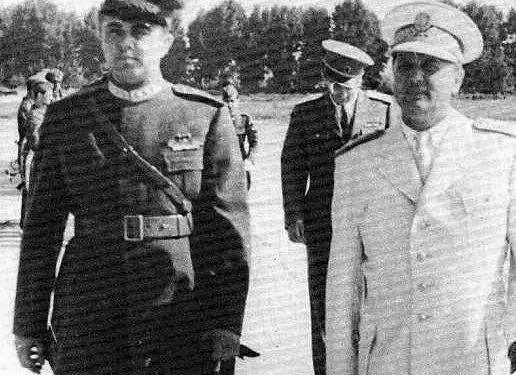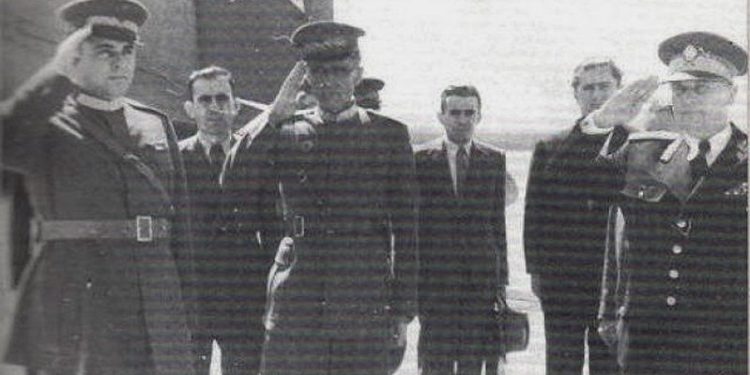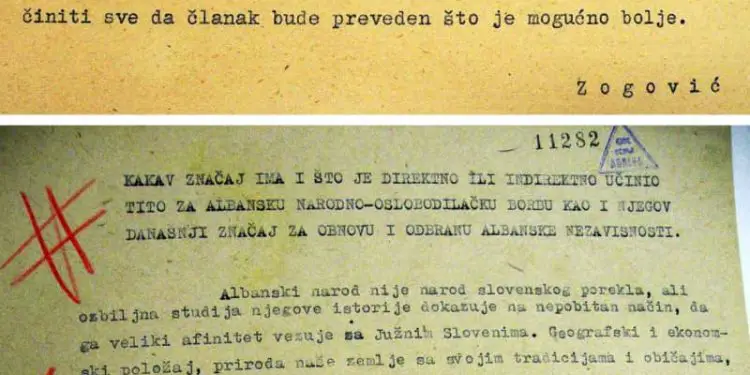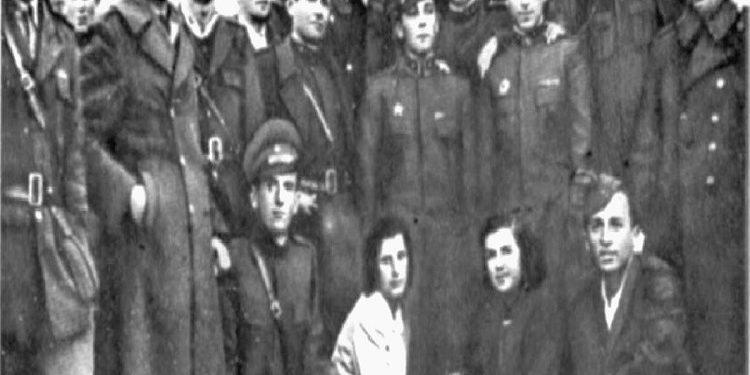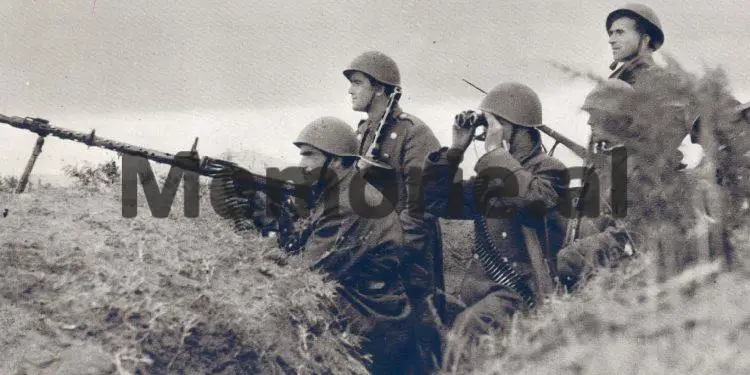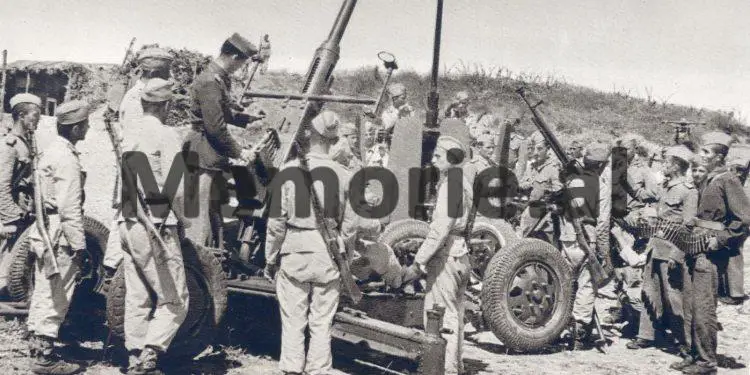By Kastriot Dervishi
Memorie.al / By means of a letter dated 29.12.1946, Enver Hoxha asks his loyalist, Josip Broz Tito, for a financial contribution for maintaining the army because it was “in the common interest of our peoples, who walk on the same path and have the same goals”. The letter was written in Albanian and Serbian (the original is in Tito’s personal archive in Belgrade). Hoxha wanted a military force of 42 thousand people. In the note dated 9.1.1947, Tito informs Hoxha (the text was sent to him by telegram) that he had met with Mehmet Shehu and recommended that the army should not go below 28 thousand people and that the old ones should be demobilized.
Part of Enver Hoxha’s letter to Tito:
“Dear friend marshal.
By means of this letter I would like to consult with you about some problems that are particularly related to our army and the actions we intend to take during the year 1947. In order to make my exposition clearer, I would like to inform you briefly , on the situation of our National Army. This has a combined force of 44,015 people, excluding the Police force.
This amount consists of 2,927 officers, 5,321 non-commissioned officers, 34,937 soldiers and 800 student soldiers. The above-mentioned amount includes the People’s Protection Division, which has an effective force of 8,710 people. Apart from the Defense Division, the effective strength of the operational army is 35,305 people. Of this force, we have 27,611 as a body, whose organic composition is irregular and is presented as follows:
-Soldiers enlisted in the army in the years 1942-1944, 8,987 people.
-Recalled soldiers (reservists) in August 1946, 9,513 people.
-Recalled soldiers (reservists) in October 1946, 2,500 people.
– Recruits called up during the years 1945-1946, 5,655 people.
The category of soldiers voluntarily joined the army during the years 1942-1944, have completed more than 2 years of military service (our law only provides for 2 years of military service).
Reservists recalled in August 1946, at the end of December 1946, completed 5 months of military service. Reservists called up in October 1946, at the end of December 1946, completed 3 months of military service.
The rest of the troop has not yet completed the mandatory military service.
In order to normalize the organic condition of the army and in connection with the training program we have ready for 1947, we think that during the month of January, we will release 18,500 people (8,987 old soldiers and 9,512 reservists of August 1946).
Simultaneously with the release of these. we think to do the mobilization of recruits born in 1920-1927, which reach the number of 16,500 auxiliary recruits.
In this way, the new composition of the army in the corps, at the end of January 1947 (except for the People’s Defense Division), is to be like this:
-Soldiers called up during the years 1945-1946, 5645 people
– Recruits called in October 1946, 956 people.
– Reservists called up in October 1946, 2500 people.
– Recruits called in January 1947, 25,611 people.
In total, this troop and the People’s Protection Division reach 25,611 people. The effective force of 1947 will therefore be 2,000 people less than that of 1946. In this way, our national army, comprehensively, with the entire People’s Protection Division, with officers and non-commissioned officers, excluding only the police forces, will had in February 1947, a force of 42,000.
Another problem of the first importance is placed before us, whenever in connection with our national army, and that is: to keep our national army standing with a strength of 42,000 men.
As you know, such an army of 42,000 people, our country is not able to sustain economically. In the draft budget of 1947, only for 9 months, 112,000,000 gold francs were provided. This amount does not include weaponry, most of the clothing, transport and some other equipment of the army…!
Soviet armament, they have only 2 divisions and those with large shortages. The rest of the army has German, Italian, English and American weaponry. The armament material is varied, insufficient, and some of the artillery, unsuitable for our conditions. We don’t have ammunition, except for 3 days of fire, for all weapons. Our transport is in a very difficult condition.
For this important problem of our army, which is connected with the whole life of our country, we are convinced, Comrade Marshal, that you will think and care the same, as for your army, and we know very well that a solution to this issue from your side will be the most fair, because it is done in the common interest of our peoples, who walk on the same path and have the same goals.
Knowing very well the external circumstances and our internal economic situation, your decisions and advice on this problem will serve us as a direction and orientation of our work for the Army.
For any eventual clarification that you may need, regarding this problem that I am presenting to you, I am always ready to answer you, in case you need it; is also ready and the Chief of Staff of our Army, General Mehmet Shehu, who is coming to Belgrade, on the occasion of the meeting of the Yugoslav
General Staff, and it will be a great honor for him, in case you want to ask him yourself, about given all the clarifications about these issues of our army.
Dear friend marshal,
I take advantage of this opportunity given to me, to show you the great gratitude and love of our people, for the great help and invaluable support you are giving to our people, in every aspect of activity.
The agreements that were recently signed in Belgrade, which are the expression of the continuation and strengthening of the fraternity of our peoples and concrete our cooperation and interaction in every field of activity, have been welcomed with the greatest enthusiasm by all our people, who will to put all his strength into the realization of this great construction work and will overcome any obstacle he may encounter in the practical implementation of the joint enterprise.
Once again, thank you very much. Memorie.al
Yours faithfully,
Enver Hoxha




